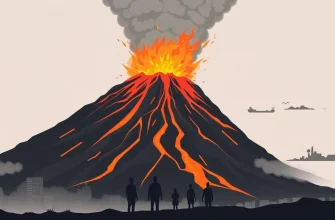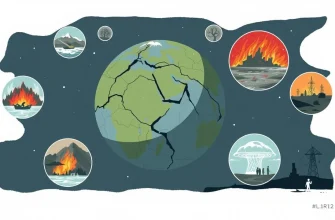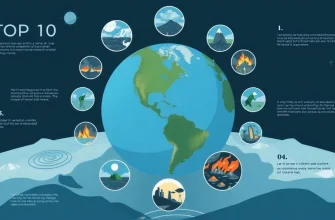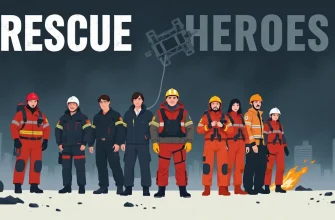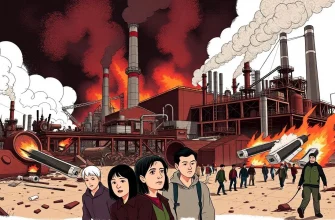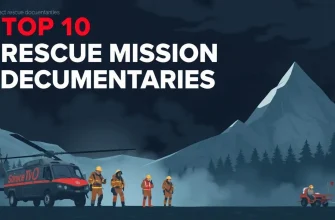Nuclear disasters have left an indelible mark on human history, serving as stark reminders of the potential for catastrophic failure in our technological advancements. These documentaries delve into the harrowing events, the aftermath, and the lessons learned from some of the most infamous nuclear incidents. They offer not only a historical perspective but also a cautionary tale about the importance of safety and oversight in the nuclear age. Here are 10 must-watch films that provide an in-depth look at these chilling events.

The Day After Trinity (1981)
Description: This film focuses on J. Robert Oppenheimer, the "father of the atomic bomb," and the Manhattan Project. It explores the moral and ethical dilemmas faced by scientists during the development of the atomic bomb.
Fact: The documentary includes interviews with many of the scientists who worked on the Manhattan Project, providing firsthand accounts.
 Watch Now
Watch Now 
The Atomic Cafe (1982)
Description: This film compiles archival footage from the 1940s to the 1960s, showcasing the U.S. government's propaganda efforts to reassure the public about nuclear safety. It's a satirical look at the era's nuclear paranoia and the government's attempts to normalize the idea of nuclear war.
Fact: The film was one of the first to use found footage as its primary source material, influencing many future documentaries.
 Watch Now
Watch Now 
Countdown to Zero (2010)
Description: This documentary argues for nuclear disarmament by detailing the risks of nuclear terrorism, accidents, and proliferation, featuring interviews with experts and former government officials.
Fact: The film was co-produced by Lawrence Bender, known for his work with Quentin Tarantino.
 Watch Now
Watch Now 
The Bomb (2016)
Description: This animated documentary tells the story of the atomic bomb, from its inception to its use, and the subsequent arms race. It uses a unique visual style to convey the gravity of nuclear weapons.
Fact: The film was created by Smriti Keshari and Eric Schlosser, with narration by Michael Douglas.
 Watch Now
Watch Now 
Atomic Homefront (2017)
Description: This documentary follows the efforts of activists in St. Louis, Missouri, to uncover and address the radioactive waste left from the Manhattan Project, highlighting the ongoing environmental and health issues.
Fact: The film sheds light on a lesser-known aspect of nuclear contamination in the U.S., focusing on community activism.
 30 Days Free
30 Days Free 
Nuclear Now (2013)
Description: Directed by Oliver Stone, this documentary explores the history of nuclear power, its potential as a clean energy source, and the disasters that have shaped public perception. It provides a balanced view on the topic, questioning the future of nuclear energy.
Fact: Oliver Stone, known for his controversial films, took on this subject to challenge the anti-nuclear sentiment prevalent in the environmental movement.
 30 Days Free
30 Days Free 
Dark Legacy: Hiroshima and Nagasaki (2009)
Description: This documentary examines the decision to drop atomic bombs on Hiroshima and Nagasaki, exploring the political, military, and humanitarian aspects of this pivotal moment in history.
Fact: The film includes interviews with survivors, providing a deeply personal perspective on the aftermath of the bombings.
 30 Days Free
30 Days Free 
Nuclear Tipping Point (2010)
Description: Featuring interviews with former U.S. Secretaries of State and Defense, this documentary discusses the dangers of nuclear proliferation and the urgent need for global disarmament.
Fact: The film was produced by the Nuclear Threat Initiative, a non-profit organization focused on reducing nuclear threats.
 30 Days Free
30 Days Free 
Into Eternity (2010)
Description: This film explores the Onkalo waste repository in Finland, designed to store nuclear waste for 100,000 years. It raises philosophical questions about our responsibility to future generations.
Fact: The director, Michael Madsen, spent years gaining access to the secretive facility to document its construction and purpose.
 30 Days Free
30 Days Free 
Chernobyl Heart (2003)
Description: This documentary focuses on the long-term health effects of the Chernobyl disaster, particularly on children born with heart defects due to radiation exposure. It won an Academy Award for Best Documentary Short Subject.
Fact: The film was instrumental in raising awareness about the ongoing health crisis in the Chernobyl-affected regions.
 30 Days Free
30 Days Free 

